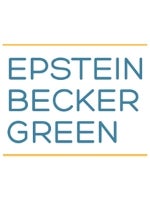As we previously reported in our “Summary of OSHA Guidance on Preparing Workplaces for COVID-19,” the U.S. Department of Labor (“DOL”) has provided detailed directions for employers with respect to ensuring an OSHA-compliant workplace during the COVID-19 pandemic. On April 10, 2020, the DOL issued a memorandum providing interim guidance on enforcement of OSHA’s recordkeeping requirements (29 CFR Part 1904) as they relate to recording cases of COVID-19. The memorandum, which is “intended to be time-limited to the current public health crisis,” became effective immediately and will remain in effect until further notice.
Under OSHA’s recordkeeping requirements, COVID-19 is a recordable illness, and employers are responsible for recording cases of COVID-19 if the case:
-
is confirmed as a COVID-19 illness;
-
is “work-related,” as defined by OSHA regulations; and
-
involves one or more of the general recording criteria in the regulations, “such as medical treatment beyond first aid or days away from work.”
All three of these criteria must be met for a case of COVID-19 to be a recordable illness. In an apparent attempt to ease the burden on most employers in determining whether a case of COVID-19 is “work-related,” the memorandum acknowledges: In areas where there is ongoing community transmission, employers other than those in the healthcare industry, emergency response organizations (e.g., emergency medical, firefighting and law enforcement services), and correctional institutions may have difficulty making determinations about whether workers who contracted COVID-19 did so due to exposures at work.
Accordingly, the memorandum advises:
Until further notice, OSHA will not enforce its recordkeeping requirements to require these employers to make work-relatedness determinations for COVID-19 cases, except where:
-
There is objective evidence that a COVID-19 case may be work-related…; and
-
The evidence was reasonably available to the employer. [Emphasis added.]
The memorandum offers as an example of objective evidence of work-relatedness, the occurrence of “a number of cases developing among workers who work closely together without an alternative explanation.” In addition, the memorandum gives as an example of “reasonably available” evidence to the employer “information given to the employer by employees, as well as information that an employer learns regarding its employees’ health and safety in the ordinary course of managing its business and employees.”
The memorandum does not appear to substantively modify existing standards for determining work-relatedness. Rather, the purpose of the enforcement policy set forth in memorandum is to “help employers focus their response efforts on implementing good hygiene practices in their workplaces, and otherwise mitigating COVID-19’s effects, rather than on making difficult work-relatedness decisions in circumstances where there is community transmission.”




 />i
/>i
